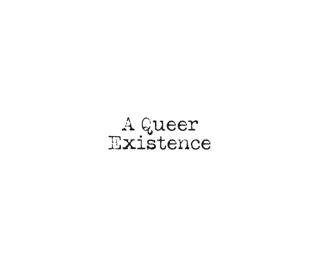
How getting past disconnected sex starts with yourself
We are responsible for our own pleasure. In order to have a great sex life, we first need to learn how to listen to our bodies and discover what we like.” Those wise words come from Sydney-based Somatic Sexologist and Sex Coach, Alice Child. For her, a lack of communication between couples which can grow to resentment, often starts within ourselves.
When it comes to how we communicate as couples, no matter our experience, gender or sexual identity, there is a lot of guess work involved. This guess work, and our growing expectations that our partners should be able to mind read, is creating a sexual culture both unfulfilled and damaging to our health.
For Child, in her experience working with couples, individuals and groups, exploring diverse topics of sexuality, intimacy and pleasure, the main issue she sees is that adults know fuck all about basic sex-ed.
“There is simply a lack of knowledge and education around pleasure anatomy, sexual communication, how to express consent, understanding arousal, orgasm and desire, navigating libido changes, and how to listen to their own bodies. This impacts our relationships and people don’t know where to go for help,” she says.
Child started her professional career in marketing and advertising, and then transitioned her skills into sexology through her involvement with the Sextech industry, becoming certified as a Lifeline Counsellor, and working with Sextech and healthtech startups.
In 2020 she founded Vulva Dialogues to normalise conversations about sex and empower individuals to learn more about their bodies and sexual health, and became fully certified as a Somatic Sexologist with the Institute of Somatic Sexology. For her, in addition to a lack of knowledge, the lack of proper support channels are fuelling the fire of sexual miscommunication between couples.
We still live in a conservative society where sexual shame is pervasive, and where many people are still too embarrassed, fearful, or ashamed to talk openly about sex. Many people still believe that great sex should be learnt intuitively and privately, and that communication ‘ruins the moment’,” says Child.
The solution? Well instead of keeping it all inside and fostering feelings of resentment for Child it starts with opening an active communication line with yourself first. "In order to have a great sex life, we first need to learn how to listen to our bodies and discover what we like. We then need to learn how to ask for it, and how to confidently and happily give and receive pleasure. Good sex takes practice, self-work and communication - it doesn’t just happen.”
And this lack of communication when it comes to sexual, emotional and spiritual connection isn’t just subject across heterosexual couples, but can plague all groups and individuals unsure on how to talk about their true feelings. “These issues are widespread, regardless of sex, gender, sexual identity, orientation, age or background. Human sexuality is broad and complex, and no two people's experiences, desires, or relationships are the same,” says Child. For her, no matter the level of experience what group you identify with, even if you have a happy and fulfilled sex life, we all need practice listening to our bodies.
“We need to always be communicating boundaries, exploring new things, navigating sexual changes in our bodies, and learning how to give and receive more pleasure. The cone of shame and silence that we have placed around sex as a society impacts everyone,” she concludes.
Related Posts
A Queer Existence: New book reveals twenty first century struggles of the gay community
A book exploring the struggles of the gay community
I will say this again: The ‘Pull Out Method’ is not a valid form of contraception
For the love of god please stop using this as a form of contraceptive
Breathing Not Broken: An Ode To Destigmatising Mental Illness
Rose Aroha on why we don't have to battle against mental health issues
7 of the most Sex-Positive TV shows
Tallying up the most sex positive shows on telly
The medical reason behind ‘Post Nut Clarity’
Why do orgasms create clarity, focus, and better decision making?
Libido? Libi-no. Exploring recommendations for a low sex drive
See how you can up your sex drive with these simple tips







